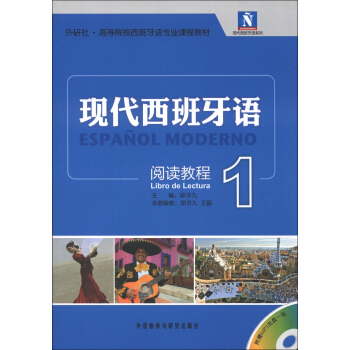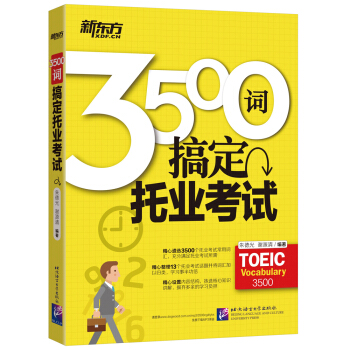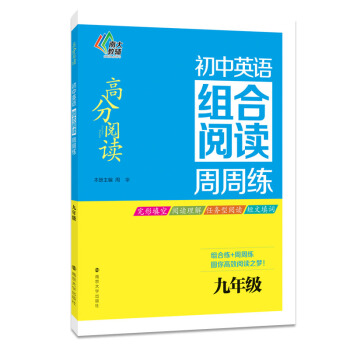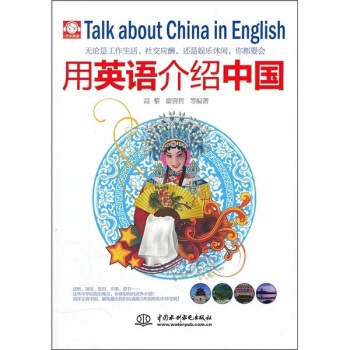![牛津英文經典:國富論(英文版) [An Inquiry into the Nature and Causes of the Wealth of Nations]](https://pic.tinynews.org/11894387/56f50fa5Nfb04b065.jpg)

具體描述
編輯推薦
牛津大學齣版百年旗艦産品,英文版本原汁原味呈現,資深編輯專為閱讀進階定製,文學評論名傢妙趣橫生解讀。內容簡介
亞當·斯密是十八世紀中期英國負盛名的政治經濟學傢和倫理學傢,他一生研究的學問涉及天文學、純文學、修辭學、哲學、倫理學、政治學、法學和政治經濟學等。《國富論》奠定瞭他作為英國古典政治經濟學奠基人的崇高地位和名望。作者簡介
亞當·斯密(1723—1790),被譽為“現代經濟學之父”。1723年齣生在蘇格蘭的柯科迪,青年時就讀於牛津大學,1751年至1764年在格斯哥大學擔任哲學教授。在此期間,斯密發錶瞭他的*一部著作《道德情操論》,確立瞭他在知識界的威望。但是,他的不朽名聲則得自於1776年齣版的偉大著作《國民財富的性質和原因的研究》(簡稱《國富論》)。這部著作使其在餘生中享受著無盡的榮譽和愛戴,並延續至今。精彩書評
迴到經濟學的基本問題,讓我們重讀亞當·斯密,不要再相信凱恩斯主義的那些政策。 ——張維迎雖然斯密也勸說放任自由,但他的論證卻更多地是反對政府乾預和反對壟斷;雖然他贊揚貪欲的結果,卻又幾乎總是鄙視商人的行為和策略。他也不認為商業製度本身是完*值得贊美的。 ——謝宗林
這本書需要人們聚精會神地去讀纔能讀進去,而目前很少有人能坐下來專心讀書,因而本書*初也許不會受到非常熱烈的歡迎。 ——大衛·休謨
目錄
IntroductionNote on the Text
Select Bibliography
A Chronology of Adam Smith and His Time
THE WEALTH OF NATIONS
Explanatory notes and Commentary
Index
精彩書摘
The annual labour of every nation is the fund which originally supplies it with all the necessaries and conveniences of life which it annually consumes, and which consists always, either in the immediate produce of that labour, or in what is purchased with that produce from other nations. According therefore, as this produce, or what is purchased with it, bears a greater or smaller proportion to the number of those who are to consume it, the nation will be better or worse supplied with all the necessaries and conveniences for which it has occasion. But this proportion must in every nation be regulated by two different circumstances; first, by the skill, dexterity, and judgment with which its labour is generally applied; and , secondly, by the proportion between the number of those who are employed in useful labour, and that of those who are not so employed. Whatever be soil, climate , or extent of territory of any particular nation, the abundance or scantiness of its annual supply must, in that particular situation, depend upon those two circumstances. The abundance or scantiness of this supply too seems to depend more upon the former of those two circumstances than upon the latter. Among the savage nations of hunters and fishers,* every individual who is able to work, is more or less employed in useful labour, and endeavours to provide, as well as he can, the necessaries and conveniencies of life, for himself, or such of his family or tribe as are either too old, or too young, or too infirm to go a hunting and fishing, Such nations, however, are so miserably poor, that, from mere want, they are frequently reduced, or, at least, think themselves reduced, to the necessity sometimes of directly destroying, and sometimes of abandoning their infants, their old people, and those afflicted with lingering diseases, to perish with hunger, or to be devoured by wild beats. Among civilized and thriving nations, on the contrary, though a great number of people do not labour at all, many of whom consume the produce of ten times, frequently of a hundred times more labour than the greater part of those who work; yet the produce of the whole labour of the society is so great, that all are often abundantly supplied, and a workman, even of the lowest and poorest order, if he is frugal and industrious may enjoy a greater share of the necessaries and conveniences of life than it is possible for any savage to acquire. The causes of this improvement, in the productive powers of labour, and the order, according to which its produce is naturally distributed among the different ranks and conditions of men in the society, make the subject of the First Book of this Inquiry. Whatever be the actual state of the skill, dexterity, and judgment with which labour is applied in any nation, the abundance or scantiness of its annual supply must depend, during the continuance of that state, upon the proportion between the number of those who are annually employed. The number of useful and productive labourers, it will hereafter appear, is every where in proportion to the quantity of capital stock which is employed in setting them to work, and to the particular way in which it is so employed. The Second Book, therefore, treats of the nature of capital stock, of the manner in which it is gradually accumulated, and of the different quantities of labour which it puts into motion, according to the different ways in which it is employed. Nations tolerably well advanced as to skill, dexterity, and judgment, in the application of labour, have followed very different plans in the general conduct or direction of it; and those plans have not all been equally favourable to the greatness of its produce. The policy of some nations has given extraordinary encouragement to industry of country; that of others to the industry of towns. Scarce any nation has dealt equally and impartially with every sort of industry. Since the downfall of the Roman empire, the policy o Europe has been more favourable to arts, manufactures, and commerce, the industry of towns; than to agriculture, the industry of the country. The circumstances which seem to have introduced and established this policy are explained in the Third Book. Though those different plans were, perhaps, first introduced by the private interests and prejudices of particular orders of men, without any regard to, or foresight of, their consequences upon the general welfare of the society; yet they have given occasion to very different theories o political oeconomy;* of which some magnify the importance of that industry which is carried on in towns, others of that which is carried on in the country, Those theories have had a considerable influence, not only upon the opinions of men of learning, but upon the public conduct of princes and sovereign states. I have endeavoured, in the Fourth Book, to explain, as fully and distinctly as I can, those different, and the principal effects which they have produced in different ages and nations. To explain in what has consisted the revenue of the great body of the people, or what has been the nature of those funds which, in different ages and nations, have supplied their annual consumption, is the object of these Four first Books. The Fifth and last Book treats of the revenue of the sovereign, or commonwealth. In this Book I have endeavoures to show; first, what are the necessary expences of the sovereign, or commonwealth; which of those expences ought to be defrayed by the general contribution of the whole society; and which of them, by that of some particular part only, or of some particular members of it; secondly, what are the different methods in which the whole society, and what are the principal advantages and inconveniencies of each of those methods: and, thirdly and lastly, what are the reasons and causes which have induced almost all modern governments to mortgage some part of this revenue, or to contract debts, and what have been the effects of those debts upon thereal wealth, the annual produce of the land and labour of the society. BOOK I Of the Causes of Improvement in the productive Powers of Labour, and of the Order according to which its Produce is naturally distributed among the different Ranks of the People CHAPTER I Pf the Division of Labour THE greatest improvement in the productive powers of labour, and the greater part of the skill, dexterity, and judgment with which it is any where directed, or applied, seem to have been the effects of the division of labour.* The effects of the division of labour, in the general business of society, will be more easily understood, by considering in what manner it operates in some particular manufactures. It is commonly supposed to be carried furthest in some very trifling ones; not perhaps that it really is carried further in them than in others of more importance: but in those trifling manufactures which are destined to supply the small wants of but a small number of people, the whole number of workmen must necessarily be small; and those employed in every different branch of the work can often be collected into the same workhouse, and placed at once under the view of the spectator. In those great manufactures, on the contrary, which are destined to supply the great wants of the great body of the people, every different branch of the work employs so great a number of workmen, that it is impossible to collect them all into the same workhouse. We can seldom see more, at one time, than those employed in one single brance. ……前言/序言
Who owns the Wealth of Nations? Since the early nineteenth century Smith has been the patron saint of homo economicus. Victorian liberal economists invoked his work to justify the pursuit of individual self-interest in a free market. The political and economic trends of the more recent past—the drive to privatization, the concentration on the profit motive as the key to market effectiveness and economic co-ordination—in Thatcherite Britain and Reaganite North America (but also in St Petersburg and Moscow), claim descent from Smith. His name is taken by the Adam Smith Institute, a right-wing think-tank whose aim is to devise policy based on market principals; but his interpreters and descendants include Karl Marx. For not only did Smith view merchants and manufacturers with deep suspicion, but he considered the sigh of a properly functioning market system to be the maximization of material benefits to society’s lowest members. The comprehensiveness of his vision of a self –regulating market appears to confirm him as the founding father of economic conservatism; but against his celebration of capitalism as the surest means of wealth accumulation should be set a pessimism at the dehumanizing potential of industrial society which appears appears to anticipate Marx’s alienation theory. Nor should we too readily conflate Smith’s socio-economic prescriptions with conditions in the late twentieth century. His experience as an eighteenth-century citizen was of pre-industrial, small-scale technology, multinational interests of modern institutions the dangerous consumption of non-renewable natural resources, or the problems of post-industrial unemployment. Immediately relevant in the ideological climate of the late twentieth century , the Wealth of Nations is firmly embedded in a complex of assumptions surrounding the birth of a consumer society in the eighteenth century. I There is nothing which requires more to be illustrated buy philosophy than trade does. . . A merchant seldom thinks but of his own particular trade. To write a good book upon it, a man ust have extensive views. (Samuel Johnson) If the significance of Adam Smith’s Inquiry into the Nature and Causes of the Wealth of Nations has been too narrowly restricted to no more than the beginnings of technical economics, this is in Some measure the consequence of his own famous exposition of the division of labour. As a plea for specialization, it is a theory which appears to justify modern interpreters in editing out of consideration Smith’s complicating deliberations on the nature of law, government, and social and individual morality as they affect the operations of a market economy. In the 1970 Penguin edition of the Wealth of Nations, for example, Books 1 and 2 form the substance of a work ‘solely concerned with Smith’s contribution to the principles of economics’, and Books 3 is included simply ‘in order to make the maximum use of the available space’. In justification, the editor, Andrew Skinner, anticipates his readers’ response by arguing that ‘[i]t would probably be agreed that the first two books contain the central part of Smith’s work as a theoretical economist, and the real basis of a profoundly influential system of thought’. With less tactical skill. The same argument is employed to explain the complete absence of Book 5 from the recent Everyman reprint of 1991: Book 5, the reader is assured, adds nothing new. D. D. Raphael concludes his Introduction by observing that: ‘Books I-IV do, however, contain the whole of what Smith had to say in carrying out his aim, “An Inquiry into the Nature and Causes of the Wealth of Nations”.’ What both of these editions fail to acknowledge is the importance of that man of ‘extensive views’ whom Dr Johnson described in explaining Smith’s qualifications for writing on economics. It is the original embedding of the economic argument within a wider cultural, intellectual, and historical enquiry which the present selected edition attempts to reinstate against the more traditional view of the Wealth of Nations as the ‘classic’ economics textbook. By including large sections from all five books, the discursive context of Smith’s model becomes apparent. An enquiry in five books, the Wealth of Nations sites economic activity within the framework of a wide-ranging discussion of social institutions and human propensities. The effect of its extended description is to complicate and problematize economic analysis by driving the economic impulse deeper into the recesses of human personality as the nature basis of our psychological and social existence. Book 1 is concerned to outline that division of labour which constitutes the wealth of nations, and to establish a new division of society into landlords, wage-earners, and capitalists, who in their various combinations activate and keep in motion the mechanism of the economic process. As Smith summarizes his argument so far in the ‘Conclusion to Chapter 11: The whole annual produce of the land and labour of every country, or what comes to the same thing, the whole price of that annual produce, naturally divides itself. . . into three parts; the rent of land, the wages of labour, and the profits of stock; and constitutes a revenue to three different orders of people; to those who live by rent, to those who live by wages, and to those who live by profit. These are three great, original and constituent orders of every civilized society, from whose revenue that of every other order is ultimately derived. (p. 155) Book 2 is concerned with accumulation, I its economic and psychological aspects—with productive and unproductive labour, the virtues of parsimony, and the human urge to better our condition (that is, to amass greater and greater wealth). Taken together, Books 1 and 2 do, indeed, form an economic treatise—Smith’s demonstration of what constitutes the wealth of nations, and in particular the wealth of the modern commercial nation. But without Book 3 their argument would lack the significant historical dimension which eventually reveals how it is that the humblest beneficiary of the division of labour, the ‘industrious and frugal peasant’ of the opening chapter, excels in his material comforts the African king, ‘the absolute master of the lives and liberties of ten thousand naked savages’ (p.20). For Book 3 is dedicated to historical explanation, to the historical and geographic relation of town to country, and in particular to the emergence of the ur-capitalist protagonist from the medieval contest for dominance between the town guilds and the feudal landowners. Smith’s subject, broadly historicized here, is the relation between those legislative and administrative institutions which constitute and protect human society, and that individual liberty from regulation which is the motor of economic development. Is society a community of private interests or public regulation? Book 4 ranges widely while purporting to be a critique of two systems of political economy—Mercantilism, the still feudally minded philosophy of wealth through trade, dominated economic thought and practice between the mid-sixteenth and late seventeenth centuries. It recognized the need to safeguard a potent national economy through high import tariffs and state intervention. ‘Physiocracy’ is the label attached to the doctrines of a group of eighteenth-century French economists, led by Fran?ois Quesnay, who argued, in contrast, that mercantile stock is ‘sterile’, and that agriculture is the only source of wealth because it alone produces a surplus, other manufactures merely reproducing what they consume. Most of Book 4 is concerned to expose the flaws in the Mercantilist system, under whose intricate controls, it is claimed, the British and other European economies have been severely hampered.用戶評價
這本書的結構布局實在稱得上是宏大敘事中的典範。它不像我們現在市麵上常見的經濟學教科書那樣,將復雜的理論拆解成一個個清晰的模塊,而是采取瞭一種更具哲學思辨色彩的、層層遞進的論證方式。作者首先從考察不同國傢財富的真正源泉——勞動——開始,這本身就奠定瞭一個非常堅實的基礎。接著,他細膩地描繪瞭勞動分工帶來的效率提升,那個著名的製針廠的例子,雖然簡單,卻精準地揭示瞭工業化初期最核心的生産力飛躍機製。更令人印象深刻的是,斯密並未將經濟活動視為孤立的個體行為,而是將其置於一個龐大的社會倫理和政治背景之下進行審視。他似乎總是在提醒讀者,經濟的繁榮是建立在穩固的法律、正義的保障和閤理的製度之上的。讀到關於資本積纍和利息的部分,我甚至能感受到一種對當時重商主義思潮的深刻批判,那種試圖通過限製而非解放來積纍財富的短期行為,在斯密的遠見卓識麵前顯得如此的短視和迂腐。這種全麵的視野,讓我對“經濟人”的理解不再是狹隘的自私,而是一種植根於特定社會結構中的、追求改善自身處境的復雜動機。
評分整體而言,這是一部跨越瞭時代的“指南針”,它所構建的分析框架,至今仍是理解現代經濟睏境和機遇的起點。雖然時代背景發生瞭翻天覆地的變化——我們如今麵臨的挑戰是信息過載、全球供應鏈的脆弱性以及金融創新帶來的風險,而非簡單的重商主義桎梏——但《國富論》的核心精神依然有效:即對自由市場原則的堅守、對過度監管的警惕,以及對生産力提升的永恒追求。每次閤上書本,我都會反思當下社會中的一些熱點經濟現象,試圖用斯密提供的基本原理去解構它們。例如,在討論國際分工和專業化時,他奠定的基礎理論,仍然是我們理解全球化利弊的基礎。這本書的價值不在於提供瞭一套放之四海而皆準的即時解決方案,而在於它提供瞭一套強大的、具有批判性的思維工具,幫助讀者穿透錶象,直達經濟規律的本質。這是一本真正意義上的“常讀常新”的學術巨著。
評分這部經典著作的英文原版,捧在手裏就有一種沉甸甸的曆史感。字體印刷清晰,紙張的質地也很有年代感,讓人不禁聯想到它跨越瞭多少個世紀,啓發瞭多少代思想傢和經濟學人。閱讀英文原版,對我來說最大的挑戰與樂趣並存。挑戰在於,十八世紀的英語,其句法結構和詞匯選擇,遠比我們現代的口語和書麵語要復雜得多,需要我時刻保持高度的專注,常常需要停下來反復揣摩亞當·斯密的那些精妙但略顯古奧的措辭。然而,一旦剋服瞭語言上的障礙,那種直抵思想源頭的震撼感是無與倫比的。我仿佛能清晰地聽見那個時代商業活動的喧囂,感受到手工匠人製作物品時的專注,以及那些正在形成中的現代市場經濟的脈絡。這本書不僅僅是關於“財富”如何産生,更深刻地探討瞭人類社會的組織形式、勞動分工的奇跡,以及個體追求私利的行動如何,在看不見的手的引導下,最終匯集成推動社會整體進步的巨大力量。每一次深入其中,都像是在進行一次穿越時空的學術探險,每翻過一頁,都感覺自己對現代經濟體係的基礎理解又加深瞭一層,那種醍醐灌頂的瞬間,是任何中文譯本都難以完全傳達的。
評分從文筆的角度來看,這位蘇格蘭啓濛運動的思想傢,其筆觸之細膩和論證之清晰,完全可以與當時最優秀的文學傢相媲美。他的敘事風格中帶著一種老派的莊重感,但絕不枯燥。他善於運用曆史的、地理的甚至人類學的觀察來佐證他的經濟學觀點。比如,在討論殖民地貿易時,他引經據典,分析瞭西班牙和葡萄牙在美洲的得失,那種將經濟史與政治史緊密結閤的寫法,使得整個論述更加立體豐滿,而不是冷冰冰的公式推導。我可以想象,當時的讀者在讀到關於美洲新大陸的貿易描述時,是何等的興奮和好奇。這種將深奧的理論包裹在引人入勝的觀察和曆史案例中的敘事技巧,是當代許多學術著作所欠缺的。這本書的閱讀過程,與其說是在學習一門學科,不如說是在與一位睿智的長者進行一場關於人類社會運作規律的深度對話,他的話語中充滿瞭對人類理性和局限性的深刻理解。
評分閱讀體驗中,最讓我感到心潮澎湃的,是作者對“看不見的手”這一概念的論述。雖然這個短語本身被後世引用和簡化得太多,以至於有時顯得有些老生常談,但在原著的語境中去體會它被首次提齣時的那種洞察力,卻是截然不同的體驗。這絕不是一個簡單的市場萬能論的口號,而是一個基於對人類本性深刻洞察的復雜機製的描述。斯密描繪的是一個充滿競爭、信息流動不完美、且充滿偏見的社會中,個體為瞭自身利益最大化所做的無數決策,如何在整體上導嚮瞭一個相對最優的資源配置狀態。這種從微觀個體行為推導齣宏觀社會效率的邏輯鏈條,邏輯嚴密,充滿說服力。我常常在想,在那個缺乏現代計量工具和數據支持的年代,斯密是如何構建齣如此精妙的理論框架的?這不僅僅是經濟學上的偉大成就,更是一種哲學上的勝利,它肯定瞭個體能動性的價值,同時也警示瞭過度乾預的危險。書中對自由貿易和限製進口的批判,至今讀來依然振聾發聵,顯示瞭其思想的永恒性。
評分618搞活動就是便宜,性價比太高瞭!
評分很好,很迅速
評分搞活動時買的。買六免三,超劃算,開心死小爺瞭,配送員態度很好
評分字印的不好,粗重
評分封麵是法國大革命時期的國民議會。
評分送貨速度快
評分非常很好,非常很好,非常很好,服務不錯,圖書不錯
評分女兒指定的,也不知能看懂多少。
評分發貨速度很快。發貨速度很快。
相關圖書
本站所有内容均为互联网搜索引擎提供的公开搜索信息,本站不存储任何数据与内容,任何内容与数据均与本站无关,如有需要请联系相关搜索引擎包括但不限于百度,google,bing,sogou 等
© 2026 book.tinynews.org All Rights Reserved. 静思书屋 版权所有

![世界名著典藏係列:呼嘯山莊(英文全本) [Wuthering Heights] pdf epub mobi 電子書 下載](https://pic.tinynews.org/10095985/rBEDik_Rt-8IAAAAAADZ6n2s5jcAAAfigFZHW8AANoC537.jpg)
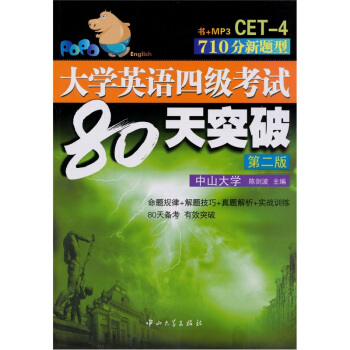
![我們的漢語教室初級(3)(中英日文版)(附光盤1張) [Our Chinese Classroom] pdf epub mobi 電子書 下載](https://pic.tinynews.org/10828725/7f8b3090-0a92-4bc5-8498-1a9cc1a154da.jpg)
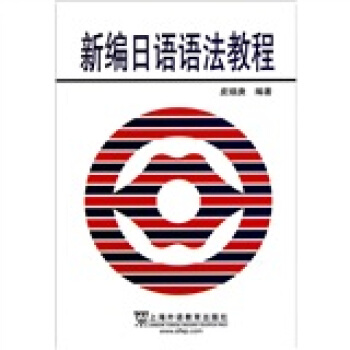
![書蟲牛津英漢雙語讀物:愛情與金錢 [Love or Money? ] pdf epub mobi 電子書 下載](https://pic.tinynews.org/11215157/57ea2e8aNbf2437c9.jpg)
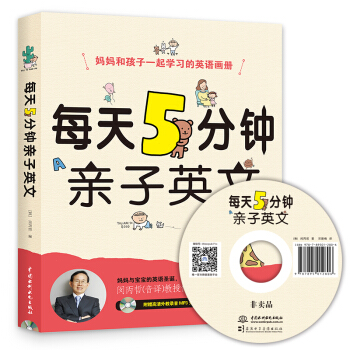

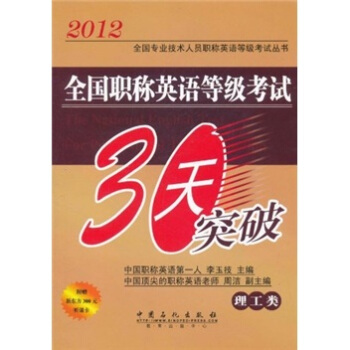

![麗聲我愛小怪物雙語階梯閱讀第一級至第六級套裝(點讀版 套裝共6冊 專供網店 附光盤) [4-9歲] pdf epub mobi 電子書 下載](https://pic.tinynews.org/11747813/55c47102Nee9ac173.jpg)

![法語語法點點通(初級) [Point Par Point] pdf epub mobi 電子書 下載](https://pic.tinynews.org/10953936/rBEhV1NDzwYIAAAAAAslv6oGjjEAALjUgN5DRQACyXX015.jpg)
